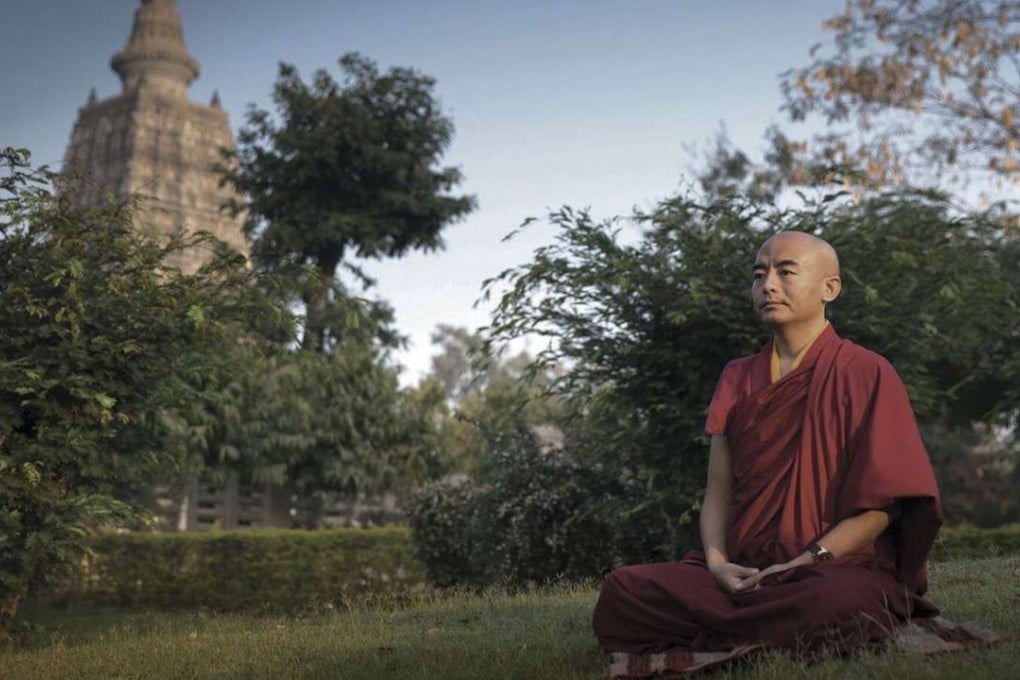‘Happiest man in the world’ has a tip for Hongkongers on how to be less stressed out
Yongey Mingyur Rinpoche, Tibetan monk and bestselling author, explains how a near-death experience made him appreciate life more, and how meditation can ease all our problems

He has been described as “the happiest man in the world” since neuroscientists rigged his head with electrodes and thought their machine was broken, but Tibetan lama, meditation teacher and bestselling author Yongey Mingyur Rinpoche modestly shrugs off the epithet. “It’s not only me, but other long-term meditators, too,” he says.
Richard Davidson, who runs the Laboratory for Affective Neuroscience at the University of Wisconsin in the United States, ran tests on Mingyur Rinpoche and other long-term meditators and found higher levels of activation in the amygdala and right prefrontal area of their brains. The pattern is associated with people who claim to feel “positively engaged, goal-directed, enthusiastic and energetic”, he concluded.
Mingyur Rinpoche, who was born in a small Nepalese village close to the border with Tibet, is in Hong Kong for three weeks for a variety of events. He is holding a 10-day retreat for more than 800 followers in Yuen Long, after which he will conduct a workshop for 600 and give two talks at Queen Elizabeth Stadium in Wan Chai for a combined audience of 7,000. All places at the events were booked up before he arrived in the city.
The title of one talk, “Joy in an Age of Anxiety”, may strike a chord with Hongkongers.
“I came to Hong Kong for many reasons; one is to share my experience about meditation. I also know that now there’s a lot of stress in Hong Kong, a lot of problems with the emotions. My main message is that when I was young, I had panic attacks, so it was really difficult. I made friends with my panic through meditation,” he says, referring to a solitary retreat he began at the age of 13 to tackle the demons that had haunted him since he was eight. His late father, Tulku Urgyen Rinpoche, also a respected Buddhist master, had advised him to look for an answer within.
“Meditation has really helped me change and save my life, and I have this passion to share this message with others,” he says.
